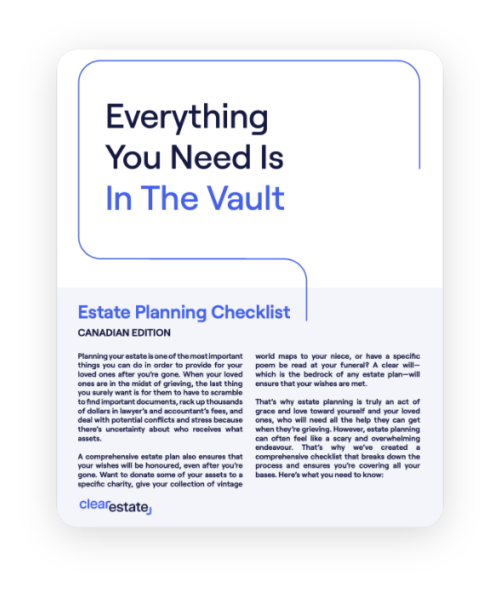Estate Planning
Oct 27, 2025
Introducing Empathy to Estate Bureaucracy
ClearEstate’s origin story: how grief, inefficiency, and compassion inspired Alex to build a fintech that brings empathy and efficiency to estate planning and settlement
Estate planning is a complex process that many people avoid. It can be unpleasant to focus on the thought of you not being around someday, but doing so is essential.


Estate planning is something that can be done at any time of your life. There's no need to wait until you're retired before beginning to do so. After all, the unexpected can happen at any time and it's better to have a plan of action in place and avoid complications for your loved ones after you've gone.
We regularly share relevant information about wills and estates.
Estate planning is a complex process that many people avoid for understandable reasons. It can be unpleasant to focus on the thought of you not being around someday, but doing so is essential. The following points are some of the most common things that people in British Columbia overlook when making an estate plan.
With a little effort from yourself, these drawbacks can be avoided, thereby making the probate process as smooth as possible. These three tips can help you avoid causing problems for your estate executor and instead make things as stress-free as they can be at an already difficult time.
As we've already mentioned, estate planning is complex, challenging, and can be pretty uncomfortable. With the help of our experts, estate planning in British Columbia has never been easier. We also offer expert assistance with estate settlement in British Columbia. If you're in need of either of these services you can schedule a free consultation with us. We'll be more than happy to help.
 Secure Your Legacy
Secure Your Legacy
Get your free 12-step Estate Planning checklist now. 89% of readers complete their estate plan within 3 months of using our guide.
Instantly Access Now